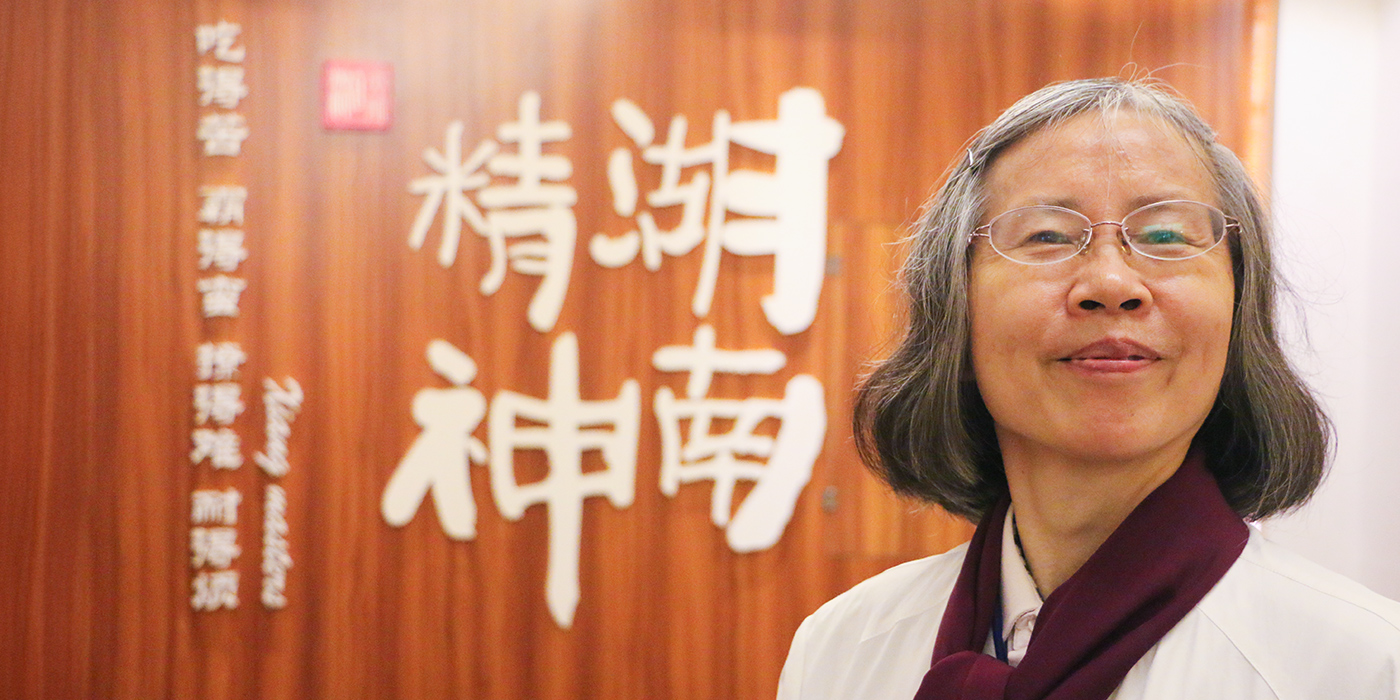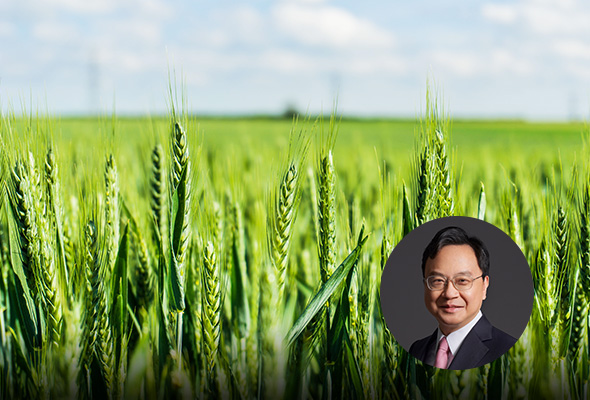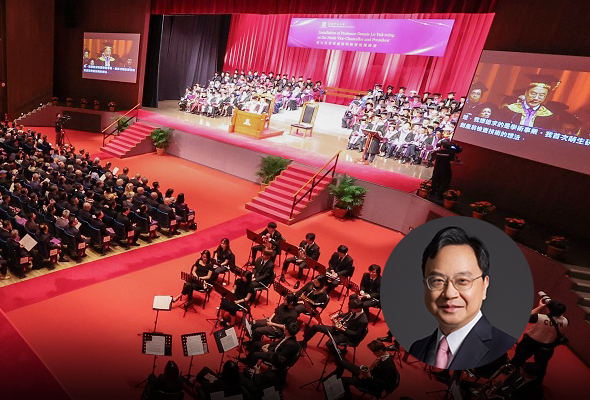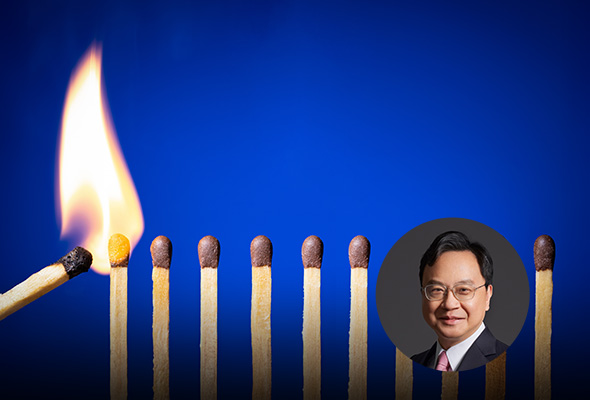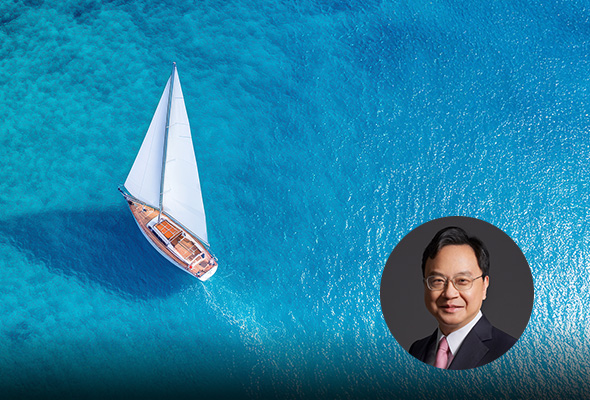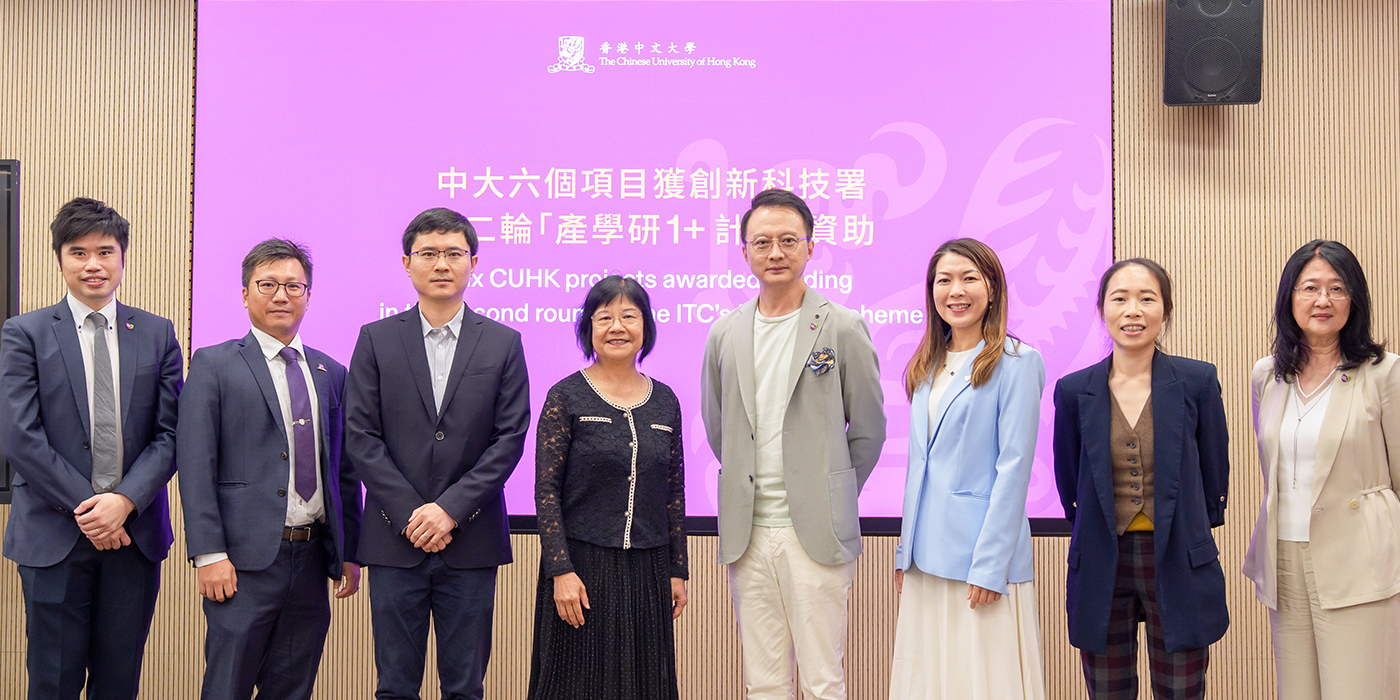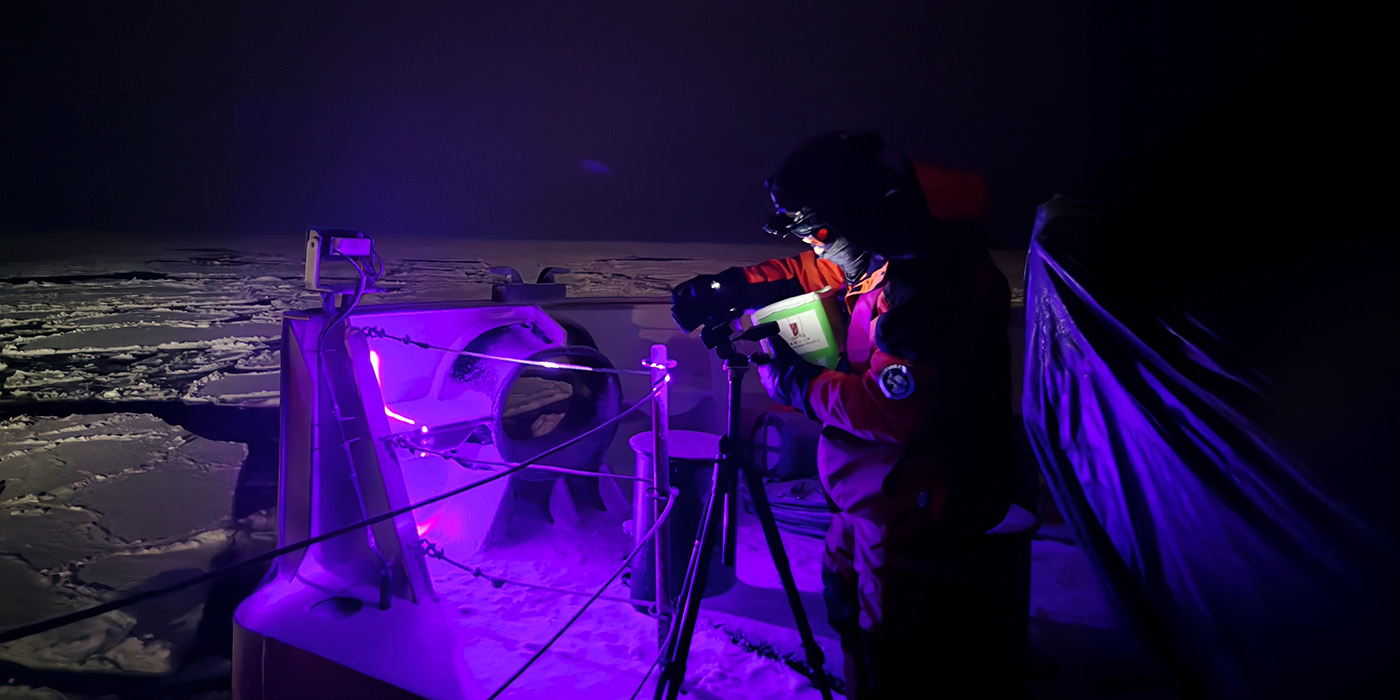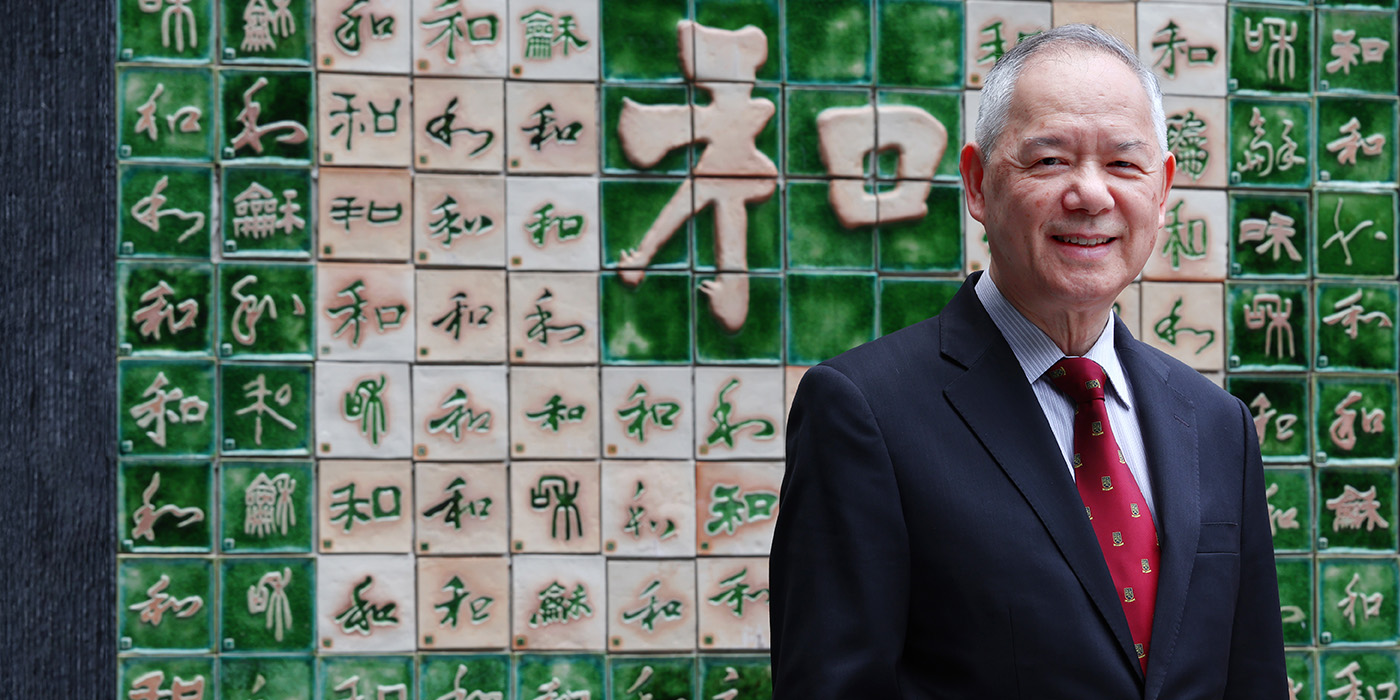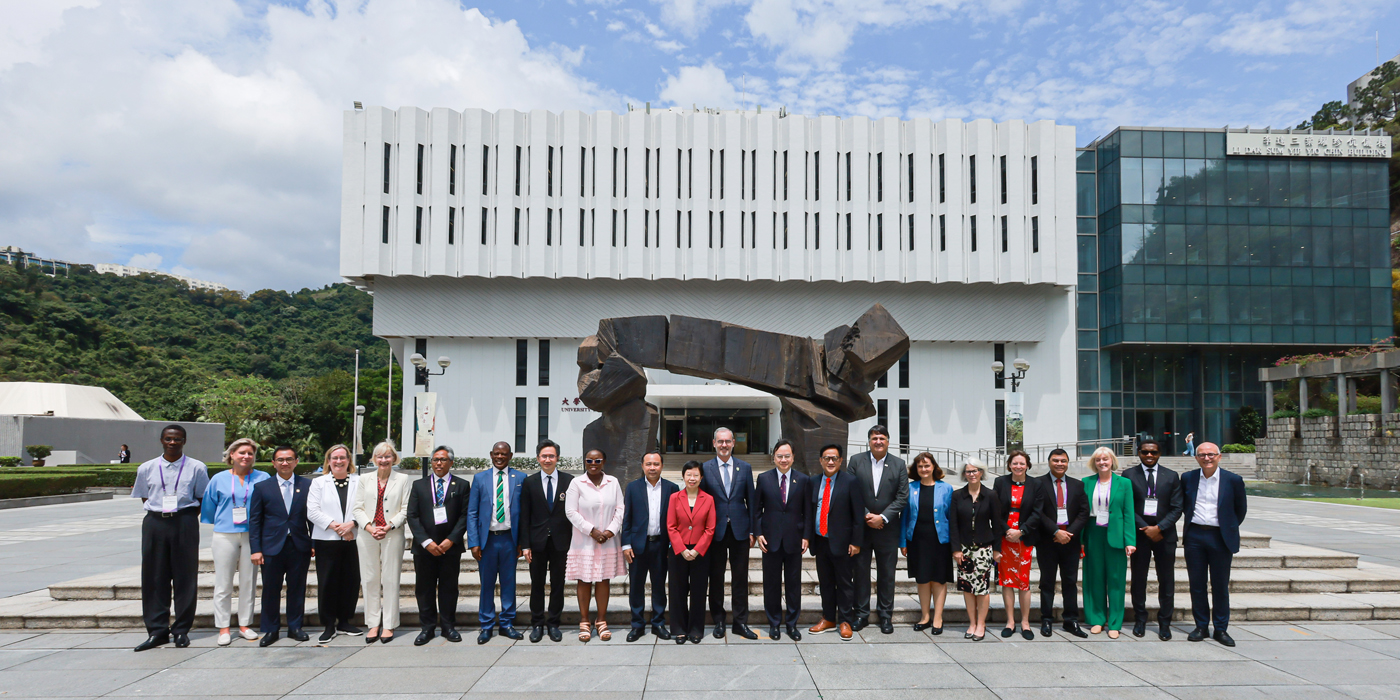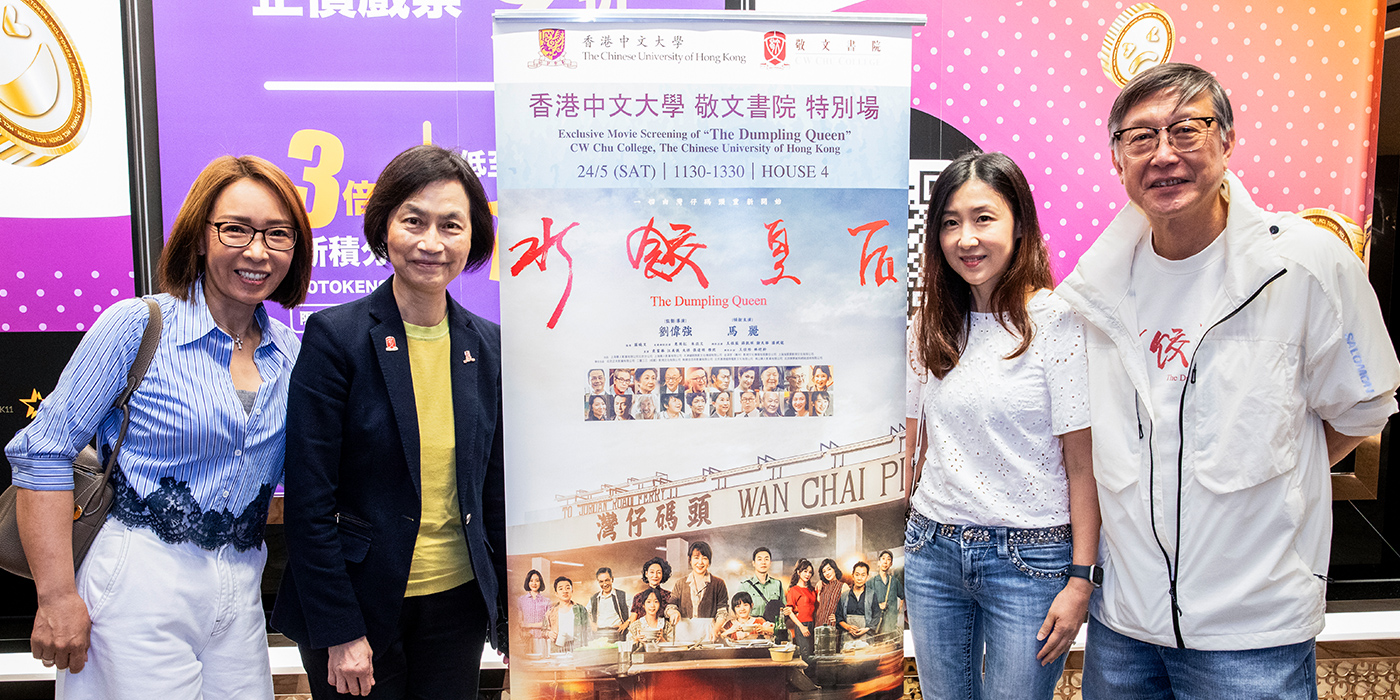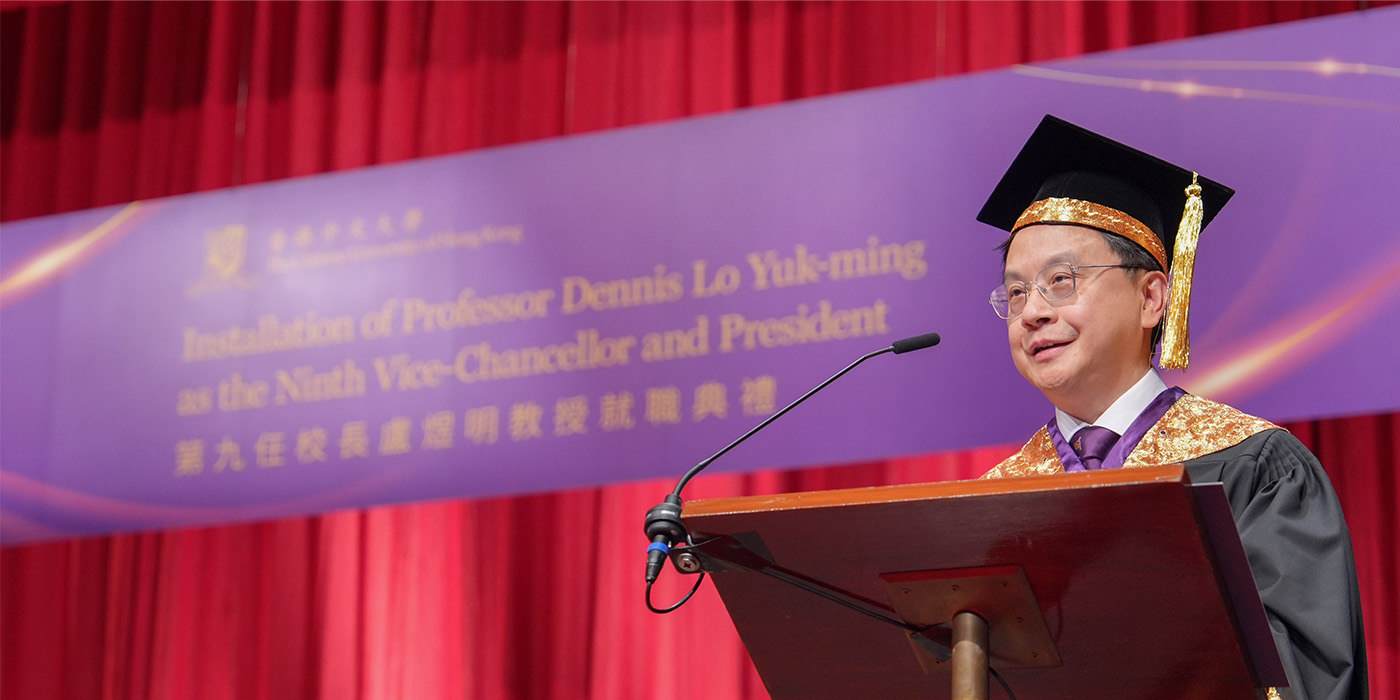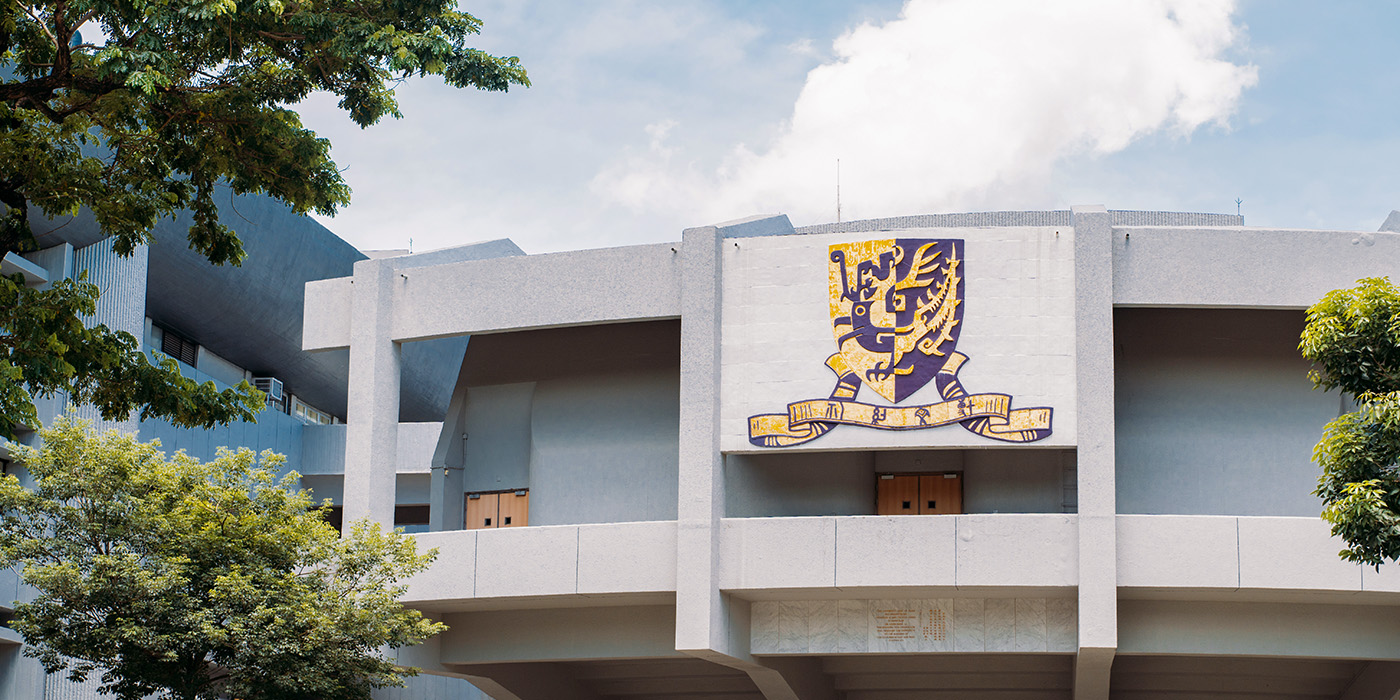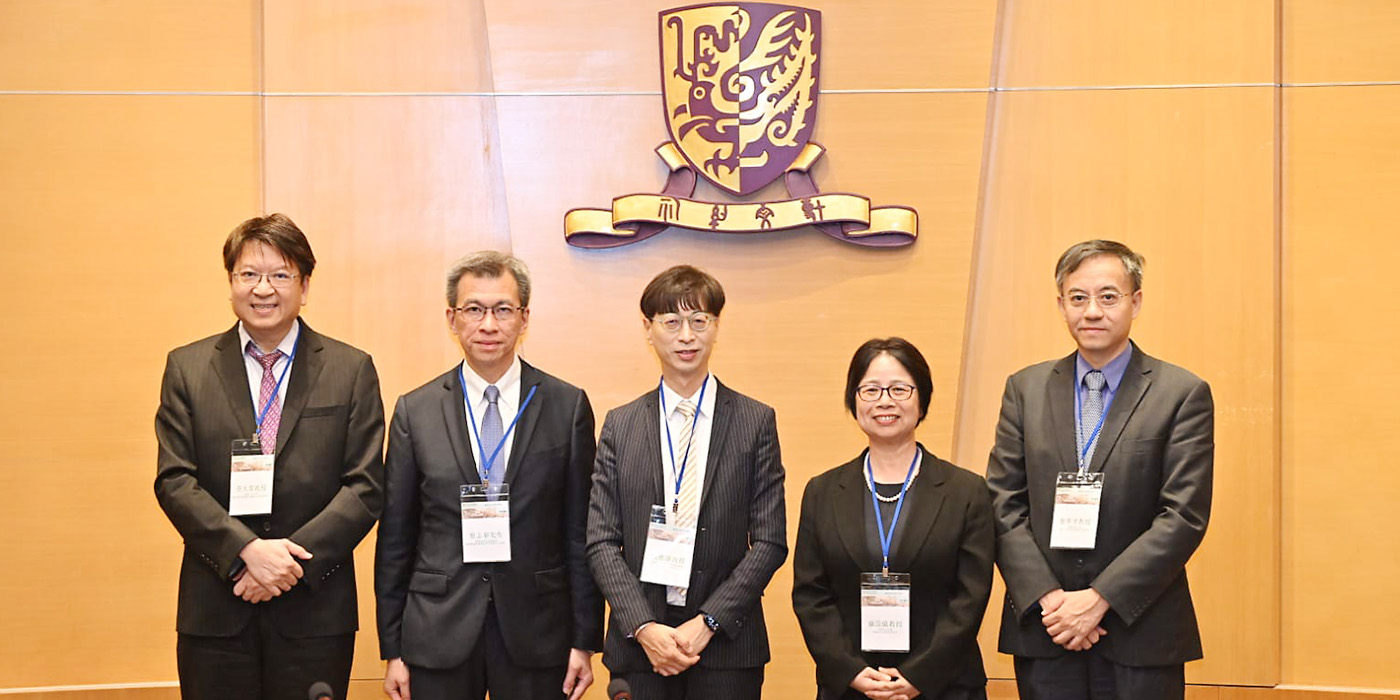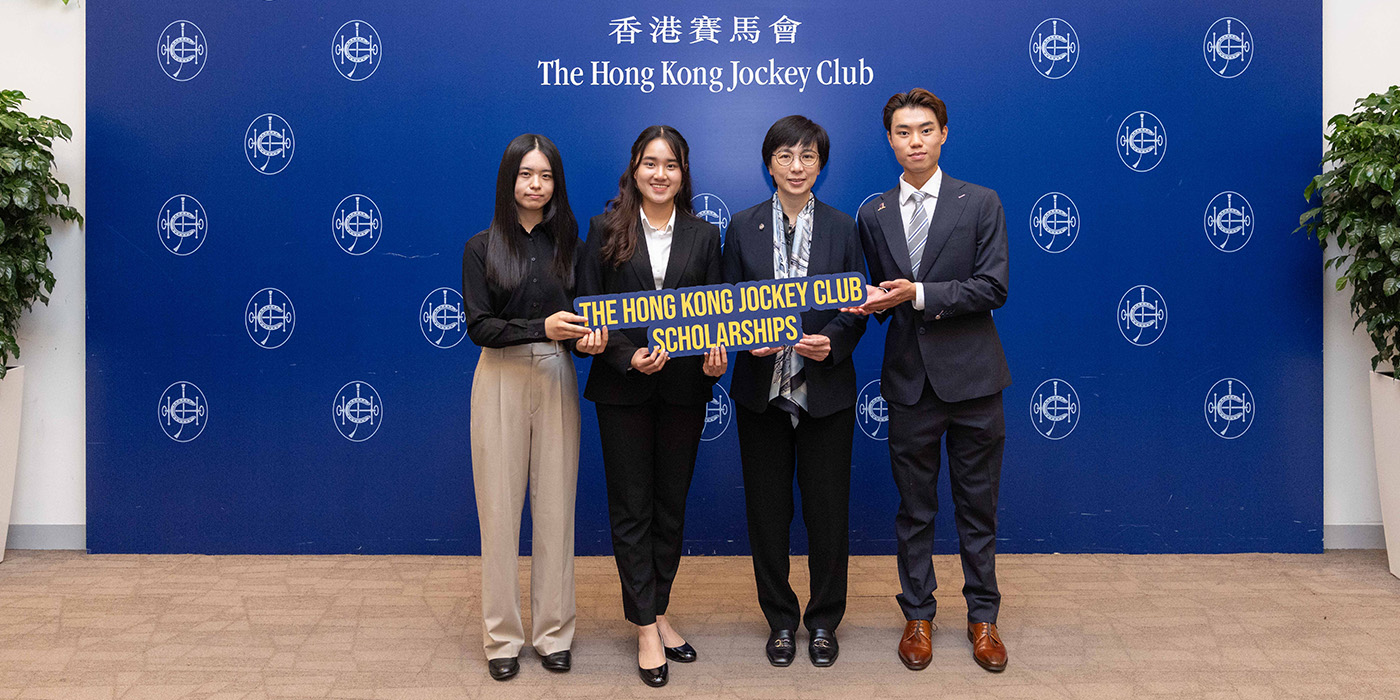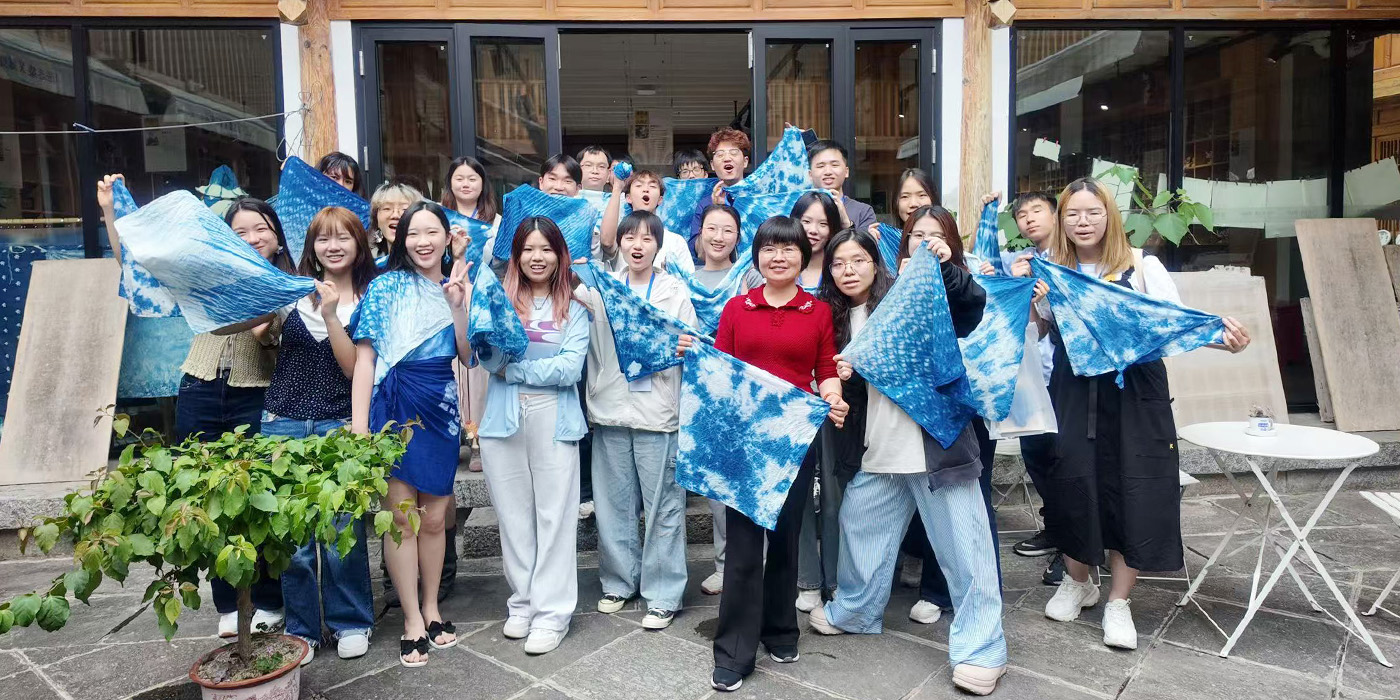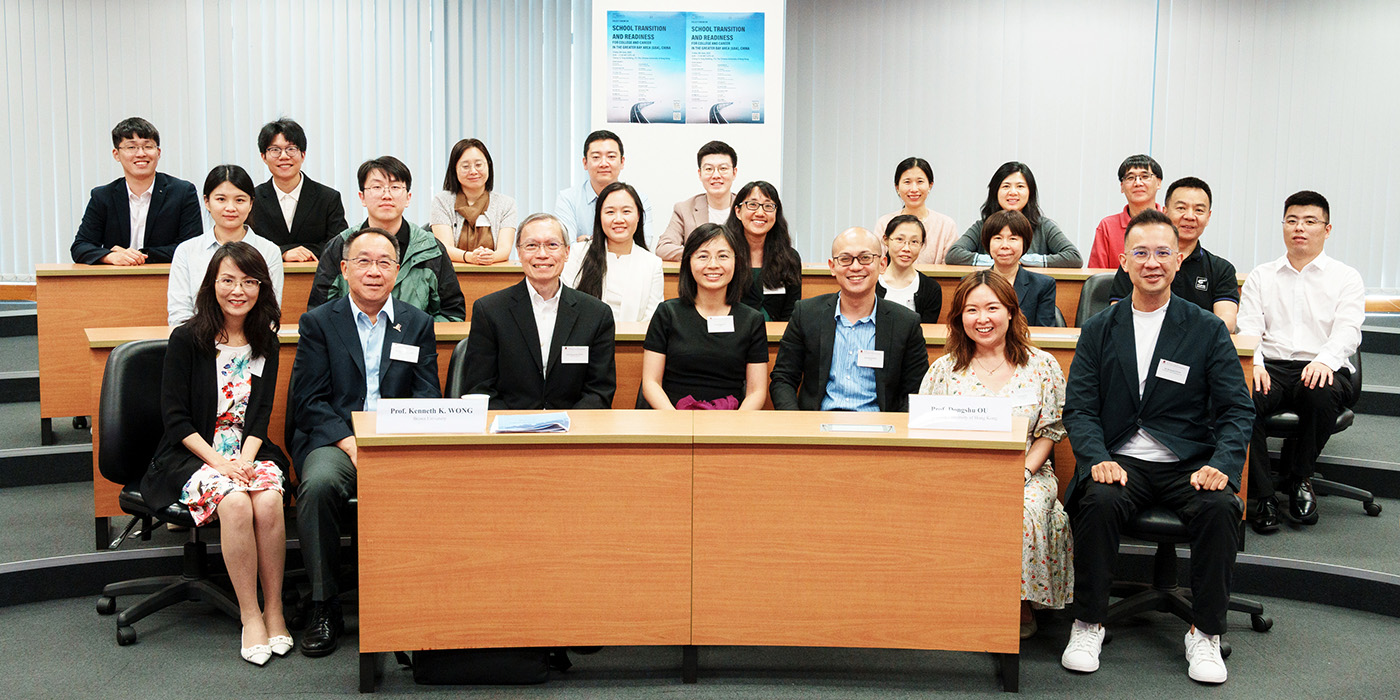Let the soul speak
Can Xue’s ‘new experimental’ literature brings the inner self to the surface
“Until now, my work has been to illustrate the profound landscape within the human heart.” (From “Can Xue: Self-Questioning and Answering”, Writing Fiction for Revenge)
Can Xue, originally named Deng Xiaohua, has been called “China’s Kafka”. The accolade came from Nobel Prize judge and sinologist Göran Malmqvist of Sweden, while American critic Susan Sontag had also highly praised her. In November, CUHK added to the global acclamation of one of the most creative Chinese writers since the mid-20th century by awarding her the Honorary Doctor of Literature. Can Xue tells CUHK in Focus about the unique “new experimental” writing style that sets her apart from contemporaries.
A pioneering debut
“I believe it is wise to embrace foreign cultures and allow them to enrich our minds.” (From “Interview with Lin Danya”, Writing Fiction for Revenge)
Classics from great literary doyens near and far entered the world of Can Xue in her formative years, in the courtyard of the New Hunan Daily, where she was born and raised in the 1950s. As a child, she developed a profound love for reading, a passion that drove her to devour masterpieces such as the Russian Anna Karenina and Chinese epic Dream of the Red Chamber in her youth. A wealth of European works and writers followed in adulthood –– Shakespearean tragedies, Little Johannes, Divine Comedy, Don Quixote, Faust, Franz Kafka and Jorge Luis Borges. Such broad reading deeply influenced and shaped her writing style.
Can Xue first tried her hand at professional narration in Yellow Mud Street, published in 1987, marking a milestone in avant-garde fiction. She describes it as a “vibrant and passionate youthful work” that lent an outlet to the budding artistic sensibility in her. “I didn’t set out to create a ‘new experimental’ type of writing at that time; I was simply following my inner impulse, breaking through traditional writing styles.” Despite still feeling her way, she was starting to exhibit an innovative spirit through the book.
The pilgrimage within
“To elevate a work to a humanistic level, one must begin by delving into the depths of one’s own soul and spiritual world.” (From “Interview with Can Xue by Southern Metropolis Weekly”, Can Xue’s Literary Views)
The philosophy of Can Xue is taking shape continually in her literary odyssey. She allows herself to be guided by rationality in an irrational practice. “My writing is a form of defamiliarisation and primitive practice, which I call rationality practising.” Her “new experimental” writing style involves experimenting with the inner self, splitting up and integrating again in contradictory attempts to envision a new type of identity.
In terms of content and themes, Can Xue defines her works as “essential literature” that focuses on exploring humanity with the hope of inspiring a yearning for life and ideals. Her narration takes a deep dive into the human soul, usually by depicting an absurd world where surreal events confront the characters.
Can Xue’s uniqueness also lies in her dedication to fusing Eastern and Western cultures. She calls herself a “pioneer of the nation”, being possibly the first writer to blend Western ways of thinking and analysis with the desires and emotions of the body, the latter approach a mark of ancient Chinese culture. The aim is to create a richer, more dynamic new inner self, to elevate centuries of Chinese civilisation while at the same time pushing Western culture to break through its bottlenecks.
Her identity as a woman is an asset, she says. It has enabled her to have a broader vision to break with tradition. “I hope that female writers in my country can stand up for themselves, not depend on any non-literary factors, and write their true selves.”
Global plaudits
“Our writing has a lineage — an exotic fruit born of the diligent study of Western classical literature, marking a breakthrough for new Chinese literature.” (From “What is ‘New Experimental’ Literature”, Can Xue’s Literary Views)
International recognition of Can Xue’s novels and literary critiques is not in short supply. She is one of the most translated Chinese writers overseas, her works featuring in the curricula of prestigious institutions such as Harvard University and Cornell University in the United States, and several in Japan such as Chuo University. They have also been selected for world-class novel anthologies. “Foreign, especially Western, readers can better understand my subtle philosophical poetic novels because they have this tradition. Chinese literature can develop only by integrating into world literature,” she says.
In 2015, her novel The Last Lover won the US’ 8th Best Translated Book Award, making her the first Chinese to be so honoured. In 2021, Can Xue received the Literary Lifetime Achievement Award of arts and cultural magazine Big Other in the US, followed by the Hua Zong World Chinese Literature Award in 2022; and in 2024, she bagged the American Literature Award.
These three lifetime achievement titles are testament to Can Xue’s esteemed status in the literary circle. Through the power of the pen, her keen depiction of human nature and seamless weaving of the East and West resonate with readers both domestically and abroad.
By Eva Choy

